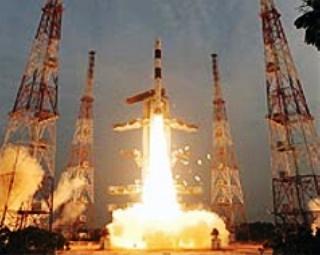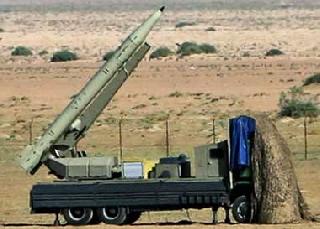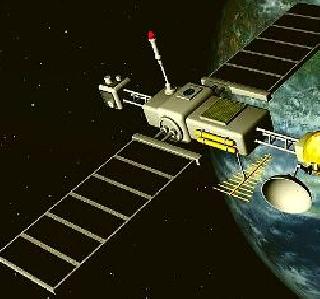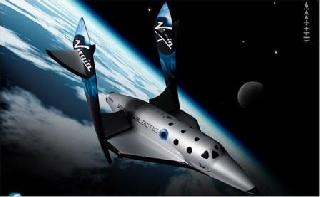
The Polar Satellite Launch Vehicle (PSLV) project has been allocated Rs 250 crore. ISRO's warhorse rocket, PSLV had put in orbit the Chandrayaan-I and two launches of the rocket are scheduled for the first quarter of 2010-11. A file photo
BANGALORE (BNS): The space spending is expected to increase by an average of 14.8 per cent annually in India over the next four years and estimated to be Rs 10,000 crore by 2014, according to a CII-Antrix-Deloitte study.
Currently, India is ranked sixth globally in terms of space budget and technological capabilities, behind the US, Europe, Japan, Russia and China, the New India Space Market Study said.
The study was released by K R Sridhara Murthi, Managing Director, Antrix Corporation Ltd, at the Bengaluru Space Expo (BSX) 2010 conference organised by Confederation of Indian Industry (CII) and Antrix, the commercial arm of Indian Space Research Organisation.
The Government space budget of Rs 5778 crore for 2010 has increased by an estimated 22 per cent from the previous year, and amounts to 0.14 per cent of GDP. From 2003 to 2010, funding has increased 144 per cent from Rs 2,368 crore.
India is well positioned to become a global leader supplying advanced technology at a fair price to US and European space industry companies, Murthi said at a Leaders Forum conducted at the World Space Conference 2010 here while releasing this report.
"India's space industry is different than its defence industry which purchases much of its equipment from foreign suppliers. Indigenous suppliers provide an estimated 70 per cent of the technology content, providing a solid foundation to provide technology innovation throughout the space industry value chain on a global basis," said Gurpal Singh, Deputy Director General and Head of Defence & Aerospace at CII.
"India’s space industry is registering explosive growth, with many opportunities for indigenous as well as foreign suppliers to help further develop the country’s communications, positioning, navigation and tracking as well as earth observation requirements going forward," added Tom Captain, Vice Chairman, Deloitte LLP, Global Aerospace & Defence Sector Leader.
 Next Article
Next Article












The Indian Air Force, in its flight trials evaluation report submitted before the Defence Ministry l..
view articleAn insight into the Medium Multi-Role Combat Aircraft competition...
view articleSky enthusiasts can now spot the International Space Station (ISS) commanded by Indian-American astr..
view article